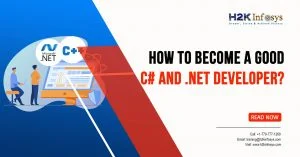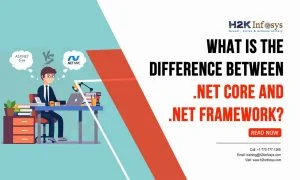Entering the world of data engineering at Microsoft is an exciting opportunity for many tech professionals. However, preparing for the interview can be daunting, especially when it comes to understanding the specific questions that may arise. In this guide, we’ll cover some of the most common Microsoft Data Engineer interview questions and how to approach them effectively.
Overview of Microsoft Data Engineer Role
Before diving into the specific Microsoft Data Engineer interview questions, it’s essential to understand the key responsibilities of a Data Engineer at Microsoft. This role typically involves designing and implementing data pipelines, working with large datasets, and ensuring the integrity and accessibility of data. As Microsoft emphasizes cloud-based solutions, particularly Azure, familiarity with these tools is crucial.
Core Technical Interview Questions

In the technical portion of the interview, you’ll likely face questions that test your understanding of data engineering principles, SQL, cloud services, and more.
SQL Queries
Example Question:
Write a SQL query to find the top five highest-earning departments in a company.
How to Approach:
For this type of question, demonstrate your ability to write efficient and optimized queries. Focus on using appropriate SQL functions like GROUP BY, ORDER BY, and LIMIT.
Sample Answer:
SELECT department, SUM(salary) as total_salary
FROM employees
GROUP BY department
ORDER BY total_salary DESC
LIMIT 5;Data Pipeline Design
Example Question:
Describe how you would design a data pipeline to process and store log data generated from a web application.
How to Approach:
Here, explain your approach to designing scalable and efficient pipelines. Mention tools like Apache Kafka for streaming data, and Azure Data Factory or Databricks for processing.
Sample Answer:
“I would implement a real-time streaming system using Apache Kafka to gather log data continuously. The data would then be processed in batches using Azure Data Factory, which provides a scalable solution for data integration. The processed data could be stored in Azure Blob Storage or a SQL Data Warehouse, depending on the need for structured or unstructured data access.”
Scenario-Based Questions
These questions are designed to test your problem-solving abilities in real-world scenarios.
Handling Data Duplication
Example Question:
You discover that data is being duplicated in your ETL process. How would you resolve this issue?
How to Approach:
Detail your approach to identifying the root cause and implementing a solution, such as deduplication strategies or redesigning the ETL process.
Sample Answer:
“I would begin by reviewing the ETL process logs to determine the source of the duplication. Common causes include multiple ingestion points or errors in the merge logic. I would then implement a deduplication process in the pipeline, using SQL window functions or distinct operations to ensure that only unique records are processed.”
Optimizing Query Performance
Example Question:
How would you optimize a slow-running query in a large data set?
How to Approach:
Discuss techniques such as indexing, query restructuring, or partitioning.
Sample Answer:
“would initiate by examining the ETL process logs to pinpoint where the duplication is taking place. If the issue lies in table scans, I would consider adding appropriate indexes. For complex queries, breaking them down into smaller subqueries or using partitioning to manage large datasets can significantly improve performance.”
Behavioral Interview Questions
Microsoft, like many large tech companies, values cultural fit and problem-solving skills. Behavioral questions are designed to assess how you handle challenges and work in teams.
Conflict Resolution
Example Question:
Describe a time when you had a disagreement with a team member and how you resolved it.
How to Approach:
Use the STAR (Situation, Task, Action, Result) method to structure your response, emphasizing your communication and teamwork skills.
Sample Answer:
“In a previous project, a team member and I had different approaches to solving a data processing issue. I suggested we discuss our ideas with the team to weigh the pros and cons of each approach. Through this discussion, we combined the best aspects of both ideas, leading to a more robust solution. The project was completed on time, and the solution was well-received by stakeholders.”
Adaptability
Example Question:
Describe an instance when you needed to swiftly acquire knowledge of a new tool or technology to accomplish a project.
How to Approach:
Highlight your ability to adapt to new challenges and your proactive approach to learning.
Sample Answer:
“While working on a project, we opted to migrate from an on-premises data warehouse to Azure SQL Data Warehouse. Although I was not initially familiar with Azure, I quickly took online courses and practiced in a sandbox environment. This allowed me to contribute effectively to the migration process, which was completed successfully with minimal downtime.”
Tips for Success
- Research Microsoft’s Core Values: Understanding the company’s culture and values will help you align your answers with what Microsoft is looking for.
- Practice Problem-Solving: Data engineering roles require strong analytical skills. Practice coding and scenario-based questions regularly.
- Stay Updated on Azure: Since Microsoft heavily utilizes Azure, familiarity with Azure services is crucial for success in the interview.
Advanced Preparation Strategies for Microsoft Data Engineer Interviews
Beyond the standard technical and behavioral questions, there are additional strategies that can significantly improve your chances of success in a Microsoft Data Engineer interview. Preparing at a deeper level demonstrates initiative and a thorough understanding of the role.
Strengthen Your Azure Expertise
As a Microsoft Data Engineer, strong proficiency in Azure services is often a decisive factor. Interviewers may assess your knowledge of Azure Data Factory, Azure Databricks, Azure Synapse Analytics, and Azure SQL Database.
- Hands-on Practice: Set up sandbox projects in Azure to practice building pipelines, transforming data, and integrating various services.
- Scenario Application: Prepare to explain how you would solve real-world data problems using Azure tools. For example, integrating streaming data from multiple sources or managing ETL pipelines efficiently.
Master Data Modeling Concepts
Data modeling is a key component of a Microsoft Data Engineer’s responsibilities. Understanding how to design scalable and maintainable data models can set you apart.
- Star and Snowflake Schemas: Be ready to explain why you would use one over the other in a given scenario.
- Normalization and Denormalization: Know the trade-offs between these approaches and when each is appropriate for performance optimization.
Practice Cloud-Based Data Pipelines
Interviewers often ask scenario-based questions about designing end-to-end pipelines. You should be comfortable explaining:
- How to ingest data from multiple sources in real time.
- How to transform raw data into analytics-ready datasets.
- How to optimize pipelines for speed and reliability.
This demonstrates that you can not only build pipelines but also maintain data integrity and optimize performance, which is critical for a Microsoft Data Engineer.
Review Big Data Concepts
Big data technologies are integral to many Microsoft Data Engineer roles. Prepare for questions on:
- Distributed Systems: Understand frameworks like Hadoop and Spark, and their role in processing large datasets.
- Data Partitioning and Sharding: Explain how you would distribute data across nodes to improve performance and reduce latency.
- Streaming vs. Batch Processing: Be able to justify the use of each approach in real-world scenarios.
Develop Problem-Solving Case Studies
Interviewers value candidates who can think critically under pressure. Prepare case studies from your own experience where you solved complex data challenges. For a Microsoft Data Engineer, these could include:
- Handling high-volume transactional data without compromising speed.
- Resolving data quality issues across multiple sources.
- Optimizing ETL pipelines to reduce cost and improve efficiency.
Leverage Microsoft Resources
Microsoft provides a wealth of online resources, including documentation, learning paths, and sandbox environments. Utilizing these resources not only builds technical skills but also signals your dedication to the Microsoft ecosystem.
- Explore Microsoft Learn modules for data engineering.
- Participate in community forums and challenges to stay updated on best practices.
- Review case studies published by Microsoft to understand real-world applications of their data services.
Final Tips for Aspiring Microsoft Data Engineers
- Mock Interviews: Conduct mock interviews focusing on both technical and behavioral questions to improve your confidence.
- Portfolio Projects: Highlight projects where you built scalable pipelines, optimized queries, or worked with cloud-based data warehouses.
- Continuous Learning: The technology landscape evolves rapidly. A successful Microsoft Data Engineer keeps learning new tools and techniques regularly.
By following these advanced preparation strategies, aspiring professionals can significantly improve their chances of success. Becoming a proficient Microsoft Data Engineer requires both technical expertise and the ability to apply that knowledge in practical scenarios, but with diligent preparation, you can confidently tackle interviews and secure the role you desire.

























